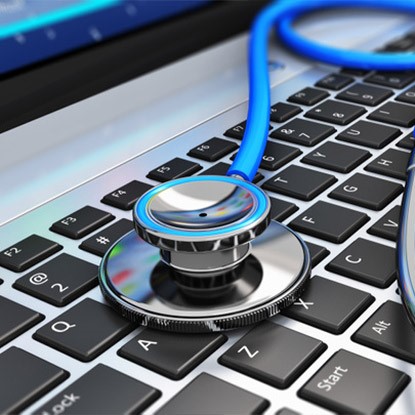Mastering Medical Claims Management: Streamlining Reimbursement Processes for Healthcare Providers


Medical claims management, encompassing both medical claims processing and administrative tasks, is a critical aspect of healthcare administration. It involves the processing, submission, and adjudication of claims for medical services rendered. Efficient management of medical claims ensures timely reimbursement for healthcare providers and smooth operations within the healthcare system. In this article, we will explore the fundamentals of medical claims management and processing, its importance in the healthcare industry, and the various strategies and technologies used to automate medical claims processing.

ClaimAction offers cutting-edge automation to optimize your workflow, boost productivity, and automate medical claims processing.
In understanding medical claims management, it’s helpful to delve into real-world examples that illustrate the complexities and nuances of the process. One common type of medical claim is a hospital visit. Suppose a patient undergoes surgery and stays in the hospital for a few days. The hospital submits a claim to the patient’s insurance provider, detailing the services provided, such as the surgery itself, anesthesia, medications, and room charges. Another example involves outpatient services, such as a visit to a specialist or diagnostic testing. These claims may include charges for the consultation, procedures performed, and any tests conducted. Additionally, pharmaceutical claims for prescription medications are prevalent, detailing the medication prescribed, dosage, and dispensing information. By examining these examples, we gain insight into the diverse nature of medical claims and the intricacies involved in their management and processing.
In the realm of U.S. healthcare, efficient medical claims processing holds paramount importance for healthcare providers, particularly those dealing with CMS 1500 and CMS 1450 forms. Timely and accurate processing of medical claims is not just about financial reimbursement; it’s about ensuring the smooth functioning of healthcare operations, optimizing revenue cycles, and ultimately delivering quality patient care. Efficient claims processing reduces administrative burden, minimizes errors, and streamlines reimbursement processes, enabling healthcare organizations to focus more on patient-centric activities and less on paperwork. Moreover, with the increasing complexities of healthcare regulations and payer requirements, an efficient claims processing system becomes indispensable for ensuring compliance and maximizing revenue capture. In essence, efficient medical claims processing is the backbone of a well-functioning healthcare system, driving financial stability and operational efficiency for healthcare providers.
Optimize your medical claims management with ClaimAction’s automation tools. Simplify processes and enhance accuracy effortlessly.
Book a demo now
Navigating the landscape of medical claims management presents various challenges for healthcare providers, particularly those handling CMS 1500 and CMS 1450 forms. These challenges include:
Addressing these challenges requires innovative solutions and a proactive approach to streamline processes and enhance efficiency in medical claims management.
Medicare and Medicaid play significant roles in medical claims management within the United States healthcare system. Both programs provide health insurance coverage for different segments of the population:
Medicare is a federal health insurance program primarily for individuals aged 65 and older, as well as for certain younger individuals with disabilities. It consists of several parts, including Part A (hospital insurance), Part B (medical insurance), Part C (Medicare Advantage plans), and Part D (prescription drug coverage). Medicare beneficiaries receive coverage for a wide range of medical services and treatments. Medical claims management involves processing and adjudicating claims submitted by healthcare providers for services rendered to Medicare beneficiaries.
Medicaid is a joint federal and state program that provides health coverage to low-income individuals and families. Eligibility for Medicaid varies by state and is based on income and other factors. Medicaid covers a broad spectrum of medical services, including doctor visits, hospitalizations, and long-term care. Similar to Medicare, medical claims management for Medicaid involves processing and adjudicating claims submitted by healthcare providers for services provided to Medicaid beneficiaries.
Medicare and Medicaid are key players in the medical claims management process. They provide insurance coverage for millions of Americans and require efficient claim processing to ensure timely reimbursement for healthcare services.
Recommended Reading: Medicare and Medicaid Claims Processing
Automate medical claims processing with ClaimAction for streamlined workflows and improved accuracy. Experience efficiency like never before.
Book a demo now
Medical claims processing automation offers numerous benefits to healthcare providers dealing with CMS 1500 and CMS 1450 forms:
Recommended Reading: Automated Medical Forms Processing Guide

Contact Us for an in-depth
product tour!
An effective medical claims management system comprises several key components essential for efficient processing and resolution. These components include:
These components work together to streamline the claims management process, reduce errors, minimize delays, and improve overall efficiency in handling medical claims.
Take control of your medical claims management with ClaimAction’s advanced solutions. Streamline processes, reduce errors, and ensure compliance effortlessly as you automate medical claims processing.
Book a demo now
Medical claim forms, such as the CMS 1500 or HCFA form and the UB04 form or CMS-1450, are indispensable documents in the claims management process. Understanding the nuances of these forms is essential for navigating the various types of claims documentation. Let’s delve into their significance:
These standardized forms play a pivotal role in facilitating accurate billing and reimbursement processes within the healthcare industry. By adhering to established format guidelines and capturing pertinent data, healthcare providers can ensure compliance with regulatory requirements and streamline communication with insurers and patients. Understanding the nuances of these forms is crucial for effective claims management and the delivery of efficient healthcare services.
The role of technology in streamlining medical claims processing cannot be overstated, particularly with innovative solutions like ClaimAction leading the charge. In today’s healthcare landscape, technology plays a vital role in enhancing efficiency, accuracy, and overall effectiveness in managing medical claims. Here’s how technology, including solutions like ClaimAction, revolutionizes the medical claims processing workflow:

ClaimAction, for instance, is an exemplary solution that leverages cutting-edge technology to automate the processing of various claim forms, including CMS 1500 (HCFA), CMS-1450 (UB04), and ADA Dental claim forms. Its advanced capabilities in data extraction, validation, and processing streamline the entire claims management process, leading to faster reimbursements, improved accuracy, and enhanced operational efficiency for healthcare providers and BPO companies alike.
By embracing technology-driven solutions like ClaimAction, healthcare organizations can optimize their claims processing workflows, ultimately improving patient care and satisfaction while reducing administrative burdens and costs.
Unlock the potential of seamless medical claims processing automation with ClaimAction. Take the next step towards optimizing your workflow and ensuring HIPAA-compliant operations.
Book a demo now
In conclusion, automated claims processing systems offer healthcare organizations and BPOs an invaluable opportunity to optimize their operations and enhance efficiency in medical claims management. Solutions like ClaimAction streamline processes, improve accuracy, and ensure HIPAA compliance, allowing providers to focus on delivering quality patient care.
By embracing automation, healthcare providers can streamline administrative tasks, reduce errors, and ensure regulatory compliance, ultimately leading to better patient outcomes and increased satisfaction. In today’s dynamic healthcare landscape, investing in innovative solutions such as ClaimAction is crucial for staying competitive and achieving success in medical claims management.
In summary, automated claims processing represents a significant advancement in healthcare administration, providing a range of benefits to organizations and patients alike. By leveraging these solutions, healthcare providers can improve efficiency, accuracy, and compliance, ultimately driving better outcomes and success in medical claims management.
HIPAA (Health Insurance Portability and Accountability Act) compliance refers to adherence to the regulations outlined in the HIPAA law, which sets standards for the protection of sensitive patient health information (PHI). In the context of medical claims, HIPAA compliance is crucial because medical claims contain sensitive patient data, including diagnoses, treatments, and personal information. Compliance ensures that this information is securely handled, transmitted, and stored by healthcare providers, insurers, and other entities involved in the claims process. It mandates strict security measures to protect patient privacy and prevent unauthorized access, ensuring the confidentiality and integrity of medical claims data throughout the processing and reimbursement cycle.
Recommended Reading: HIPAA Compliance: Claims Automation Tips